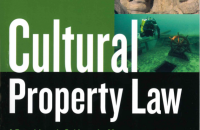In the United States health care laws had remained pretty much the same for many years until the Affordable Care Act was passed. The Affordable Care Act offers reform to the current health care laws that are in place and provides individuals with new options for coverage, consumer protection, and offers the citizens of the country the chance to make better and more informed choices about their health. Health Care Law, federal and state administered, deals with issues related to (…)
Franchise Law
Franchise law is the body of law that relates to making, operating and ending franchise relationships. Franchise law encompasses laws and regulations at all levels of government that govern how corporations and individuals may enter into franchise relationships. The practice of franchise law involves helping clients understand and comply with franchise laws. It may also include enforcing franchise laws or advocating for changes to the law. What is a franchise? A franchise is the legal use of another company’s business (…)
Food Law
Food law is the collection of laws and regulations that govern food production, distribution and consumption. Food laws aim to protect consumers and provide for the efficient growth and use of food in the United States. Food attorneys focus their careers on helping clients comply with food laws and regulations. In addition, they work on behalf of government agencies making or enforcing food laws and policies. Food laws cover a variety of topics Most people know that food laws govern (…)
Firearm Law
Firearm law is the combination of laws, regulations and public policy that govern the manufacture, distribution and sale of firearms in the United States. Although the basic rule is that guns are legal in the United States, there are exceptions to the rule, and firearm law remains controversial. Firearm law says who can make or buy a gun and under what circumstances. Firearm laws exist in the United States at both the federal and state levels. The Second Amendment The right to (…)
FDA Law
Food and Drug Administration law, or FDA law, is the body of law that regulates food, cosmetic and drug manufacturing and sale in the United States. The goal of FDA law is to make food and drugs safe for public consumption. The goal is to provide consumers with honest information about the contents of a product so that consumers can make informed choices. FDA law also exists to regulate how food and drug manufacturers maintain the rights to profit from (…)
Family Law
Family law is the area of law that addresses family relationships. It includes creating family relationships and breaking them through divorce and termination of parental rights. Family law addresses adoption, contested custody of children and the child support obligations that result. Because family law is the practice of law that relates to relationships and children, it can be one of the most emotional areas of law. Family lawyers are involved in very personal aspects of their client’s lives. Family law practice (…)
Estate Law
Estate law is the body of law that concerns a person’s physical and personal property. Estate law involves planning for a person’s finances and property both during their lifetime and after. It’s a body of law that includes taking care of people and property. It can involve both transactional law and litigation. Estate law is all of the laws that impact how a person makes decisions and issues directives about their personal affairs. What is an estate? An estate is (…)
Environmental Law
Environmental law is the collection of laws, regulations, agreements and common law that governs how humans interact with their environment. The purpose of environmental law is to protect the environment and create rules for how people can use natural resources. Environmental laws not only aim to protect the environment from harm, but they also determine who can use natural resources and on what terms. Laws may regulate pollution, the use of natural resources, forest protection, mineral harvesting and animal and (…)
Entertainment Law
Entertainment law is the collection of the many areas of law that impact the entertainment industry. Entertainment law is the sum total of several different types of law that are relevant to the entertainment industry including transactional law and litigation. Laws that impact the entertainment industry include federal and state laws, rules created by government agencies and common law legal precedent created by the courts. Entertainment law impacts not only the talent that performs in the entertainment industry but also the production aspects (…)
Energy Law
Energy law is the field of law concerned with creating, enforcing and challenging laws that regulate energy use. Laws exist that regulate the creation and harvesting of energy. There are laws that regulate taxation of energy use. Energy companies and the public alike must navigate energy laws as they relate to the sale, use and conservation of energy resources. Many people don’t realize how much energy laws and regulations impact their daily life. Each time you put gasoline in your (…)
Employment Law
Employment law is the collection of laws and rules that regulate relationships between employers and employees. Employment laws say when an employer can hire employees and when the employees can work. The laws cover what an employer must pay the employee for their work. They create minimum requirements for working conditions for employees. Following employment law When an employer wants to hire someone, there’s a lot they have to know. There are minimum wage laws that require the employer to (…)
DUI / DWI Law
DUI (driving under the influence) and DWI (driving while impaired) law is the body of law that makes up criminal drunk driving and impaired driving charges. Any law that penalizes driving under the influence or driving with an unlawful bodily content of alcohol or drugs is a DUI / DWI law. DUI / DWI law involves both prosecuting and defending against cases of drunk driving. There are several ways to be a drunk driver In all 50 U.S. states, DUI / (…)
Derivatives and Futures Law
Derivatives and futures law is the collection of laws that regulate trading in derivatives and futures. Derivatives and futures law involves regulations. It also involves compliance. Practicing derivatives and futures law requires identifying applicable laws and regulations, creating a compliance plan and helping clients negotiate business transactions. Attorneys in the area of law may also help their clients defend against enforcement actions. What are futures and derivatives? A derivative or future is a financial contract where the value of the (…)
Defamation Law
Defamation law is the area of law that relates to communications about the reputation of another person. Defamatory speech is a communication that might hurt the reputation of someone else. The purpose of the area of law is to protect people from having their lives and livelihoods ruined or significantly altered because of untrue statements against them. However, the law still protects a person’s First Amendment right to speak freely without being held liable for saying something insulting, making a (…)
Cyber law
Cyber law otherwise known as “internet law” is the area of law that regulates how people use the internet. There are cyber laws that are criminal laws and there are cyber laws that are civil laws. Any law or regulation that involves how people use computers, smartphones, the internet and other related technology is cyber law. Cyber law is also called digital law. As technology changes, the laws that govern electronic communication change, too. Cyber law encompasses all of the (…)
Cultural Property Law
Cultural property law is the body of law that relates to protecting the buildings, artifacts and other items that are significant to a people and culture. Cultural property is the collection of unique real and personal property that’s important to a culture. The field of cultural property law seeks to protect cultural items that are important to a society or group. Cultural property may include any of the following: Ancient buildings Cultural buildings like museums and performing arts centers Significant (…)
Cryptography Law
Cryptography law is the body of law that relates to securing and protecting information from unauthorized access. Cryptography laws protect individuals from having their personal information disseminated without their consent. They also work to protect government secrets as part of a military defense strategy. Another name for cryptography law is encryption law. What Is Cryptography? Cryptography or encryption is the practice of modifying information with a secret encoding key or other method of transforming the information to another form. The (…)
Criminal Law
Criminal law is the area of law that relates to prohibited conduct in society. When government leaders take steps to ban certain actions, they create crimes. Criminal law is the area of law that involves enforcing criminal law as well as defending against allegations of violations of criminal law. The purpose of outlawing conduct is to protect society. Law makers typically pass a law with the belief that it’s for the public good. Criminal laws must be applied evenly to (…)
Corporate Law
Corporate law is the body of laws, rules, regulations and practices that govern the formation and operation of corporations. It’s the body of law that regulates legal entities that exist to conduct business. The laws touch on the rights and obligations of all of the people involved with forming, owning, operating and managing a corporation. What’s a corporation? A corporation is a legal entity that exists to conduct business. It’s a separate legal entity from the people who make it. (…)
Copyright law
Copyright law is the area of law that protects the right of authors, artists and creators to profit from their work. The purpose of copyright law is to encourage people to make creative works. Lawmakers believe that people are more likely to invest the time and effort to make creative, artistic works if they know they’re going to have the exclusive right to profit from those works. What’s protected under copyright law Copyright laws protect the rights of the people (…)




















